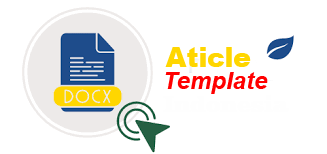Sistem Pendukung Keputusan Menentukan Aparatur Sipil Negara Terbaik Pada Dinas Pengelolaan Sumber Daya Air Unit Pelaksana Teknis Dinas dengan Metode Simple Additive Weighting
DOI:
https://doi.org/10.30865/json.v1i1.1377Abstract
The Water Resources Management Agency has the main duty to organize some district government affairs in the field of water resources management based on the principle of autonomy which becomes the authority, deconcentration and assistance duty and other tasks in accordance with the policy stipulated by the Regent based on the applicable laws and regulations. The performance appraisal undertaken in this agency is intended for the Civil State Apparatus. the assessment process is carried out for measuring and improving the performance of the State Civil Apparatus so as to encourage these employees to work better. From the assessment of the superior can be determined the best employee or promotion position. The performance appraisal process conducted by the culture and tourism office is still done manually, so the performance calculation tends to be subjective and takes a long time. Therefore, in order that the process of appraising employee performance becomes more objective and practical, it should be done computerized by developing an application that implements the right methods. This subjectivity can be overcome with decision support system using Simple Additive Weighting (SAW) method based on existing assessment criteria. The end result of research is the rank of employee value that can be a consideration for decision makers in the determination of promotions as well as an encouragement for employees to work better and productive.
References
Bentley, Lonnie D dan Whitten, Jeffrey L. 2007. Systems Analysis and Design for the Global Enterprise, 7th Edition, International Edition. McGrawHill, New York.
Davis, Ralp C dalam Hasan. (2004). Pokok-pokok Materi Teori Pengambilan Keputusan. Jakarta: Ghalia Indonesia.
Ladjamuddin, Al-Bahra. 2006. Analisis dan Desain Sistem Informasi. Yogyakarta : Graha Ilmu.
Turban, Efraim, Jay E. Aronson dan Ting-Peng Liam. 2005. Decision Support Systems and Intelligent Systems. Yogyakarta : Penerbit Andi.
Umar, Daihani dan Dadan. 2001. Komputerisasi Pengambilan Keputusan. PT Elex Media Komputindo : Jakarta
Undang-Undang Nomor 5 Tahun 2014 tentang Aparatur Sipil Negara
S. H. Sahir, R. Rosmawati, and K. Minan, “Simple Additive Weighting Method to Determining Employee Salary Increase Rate,†Int. J. Sci. Res. Sci. Technol., vol. 3, no. 8, pp. 42–48, 2017.
D. C. Hartini, E. L. Ruskan, and A. Ibrahim, “Sistem Pendukung Keputusan Pemilihan Hotel Di Kota Palembang Dengan Metode Simple Additive Weighting (SAW),†J. Sist. Inf., vol. 5, no. 1, pp. 546–565, 2013.
R. T. Utami, D. Andreswari, and Y. Setiawan, “Implementasi Metode Simple Additive Weighting (SAW) dengan pembobotan Rank Order Centroid(ROC) Dalam Pengambilan Keputusan Untuk Seleksu Jasa Leasing Mobil,†J. Rekursif, vol. 4, no. 2, pp. 209–221, 2016.
Khairul;, M. Simaremare, A. Putera, and U. Siahaan, “Decision Support System in Selecting The Appropriate Laptop Using Simple Additive Weighting,†Int. J. Recent TRENDS Eng. Res., vol. 2, no. 12, pp. 215–222, 2016.
Downloads
Published
How to Cite
Issue
Section
License

This work is licensed under a Creative Commons Attribution 4.0 International License
Authors who publish with this journal agree to the following terms:
- Authors retain copyright and grant the journal right of first publication with the work simultaneously licensed under Creative Commons Attribution 4.0 International License that allows others to share the work with an acknowledgment of the work's authorship and initial publication in this journal.
- Authors are able to enter into separate, additional contractual arrangements for the non-exclusive distribution of the journal's published version of the work (e.g., post it to an institutional repository or publish it in a book), with an acknowledgment of its initial publication in this journal.
- Authors are permitted and encouraged to post their work online (e.g., in institutional repositories or on their website) prior to and during the submission process, as it can lead to productive exchanges, as well as earlier and greater citation of published work (Refer to The Effect of Open Access).




